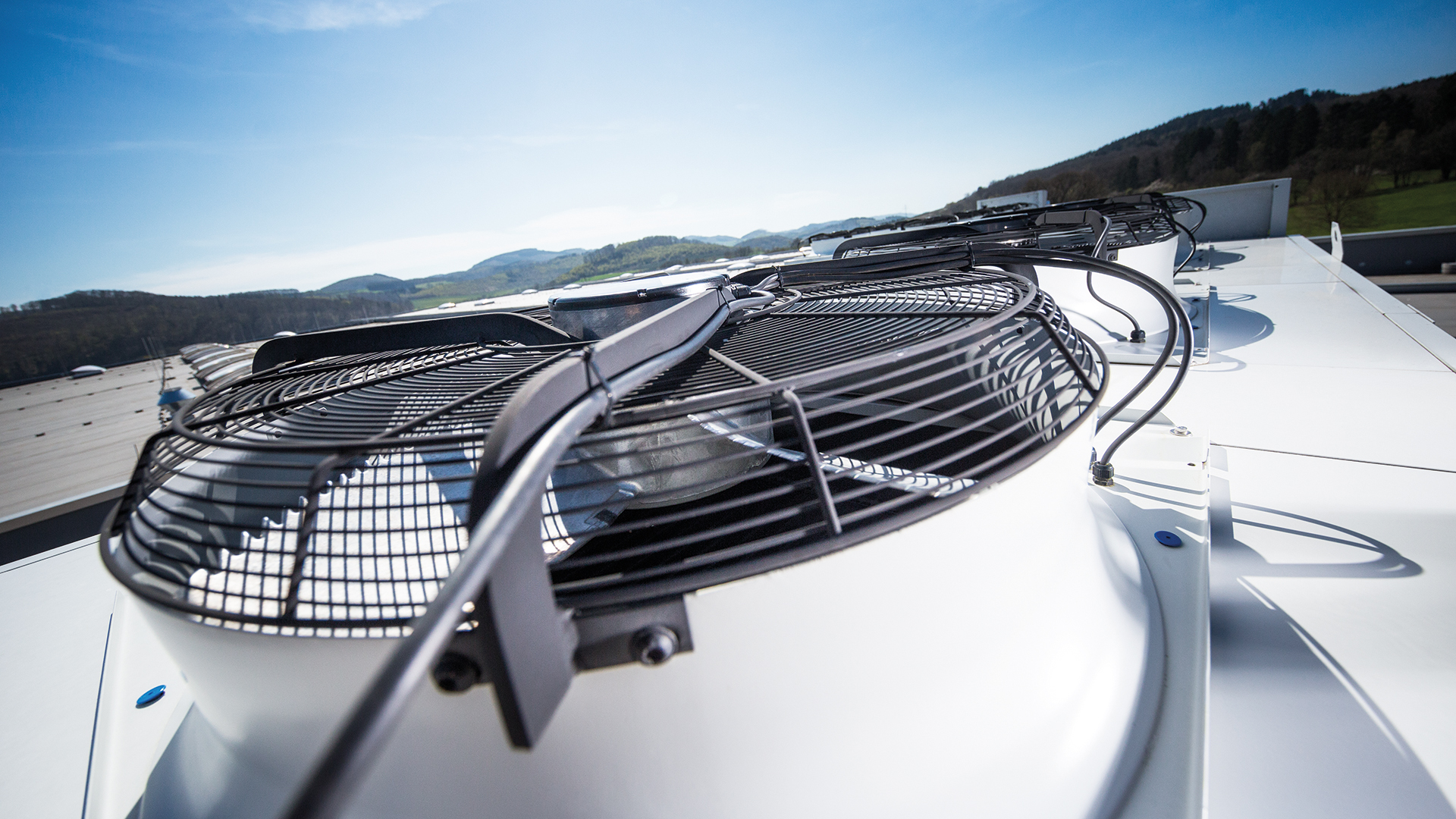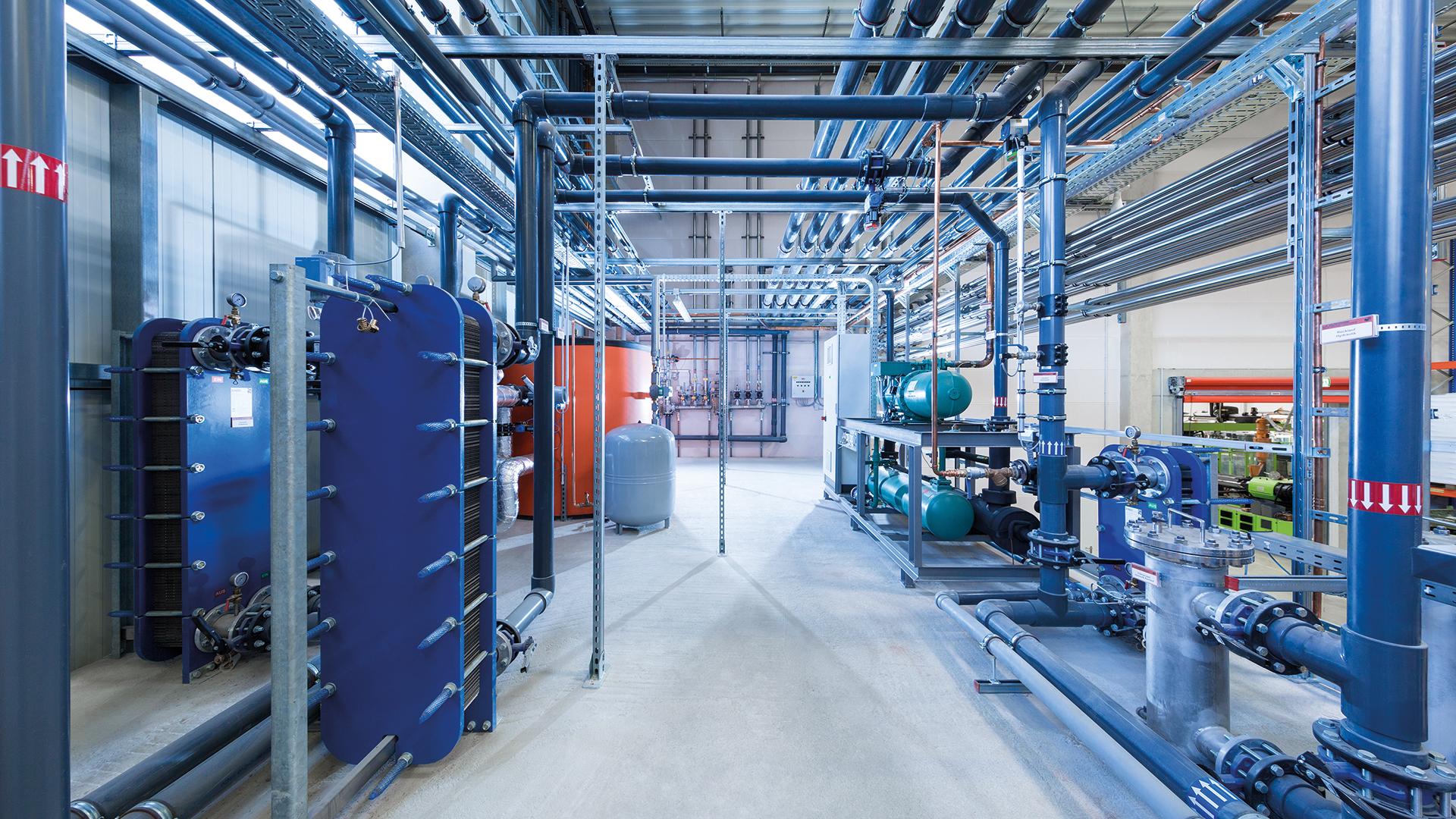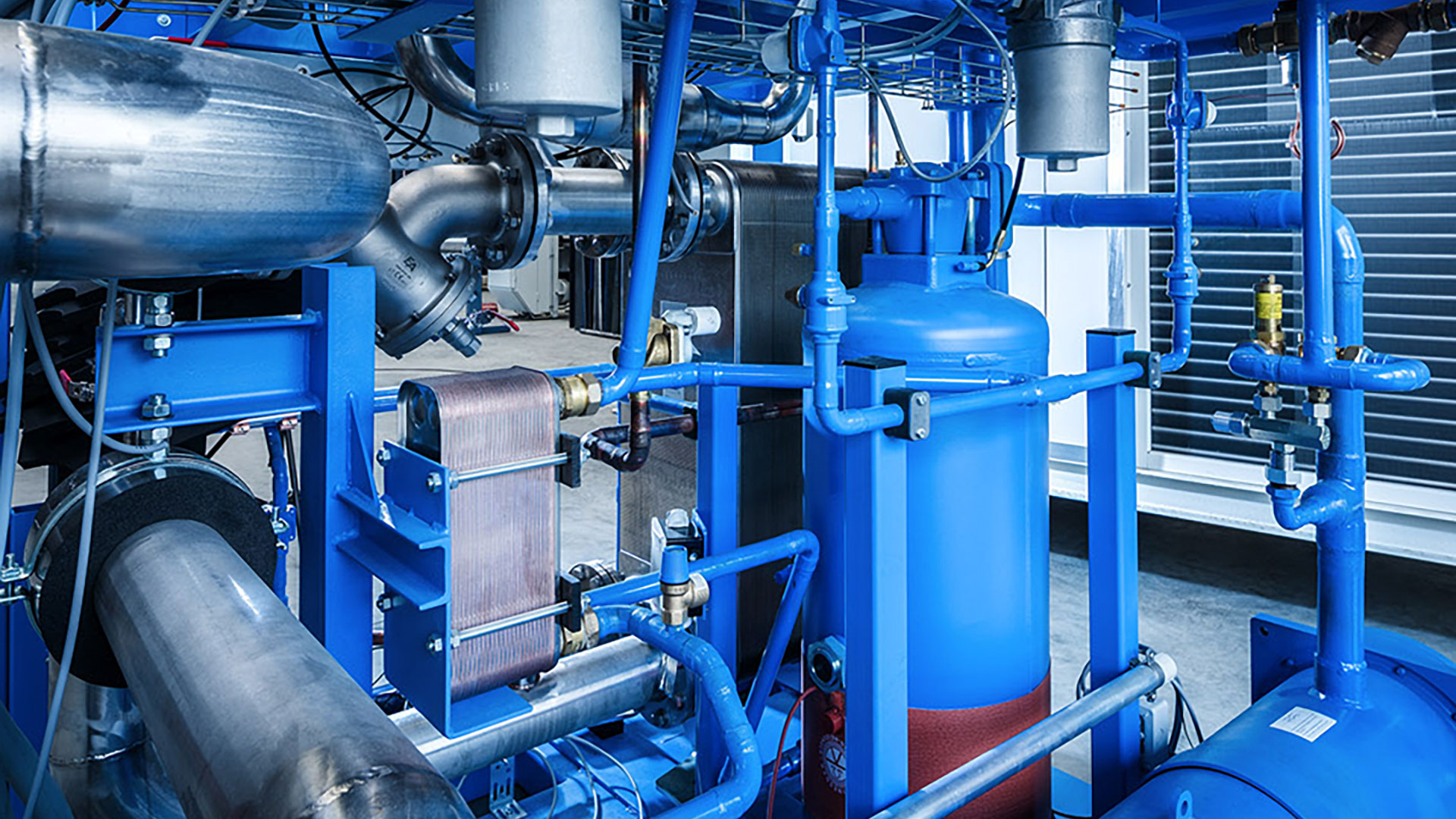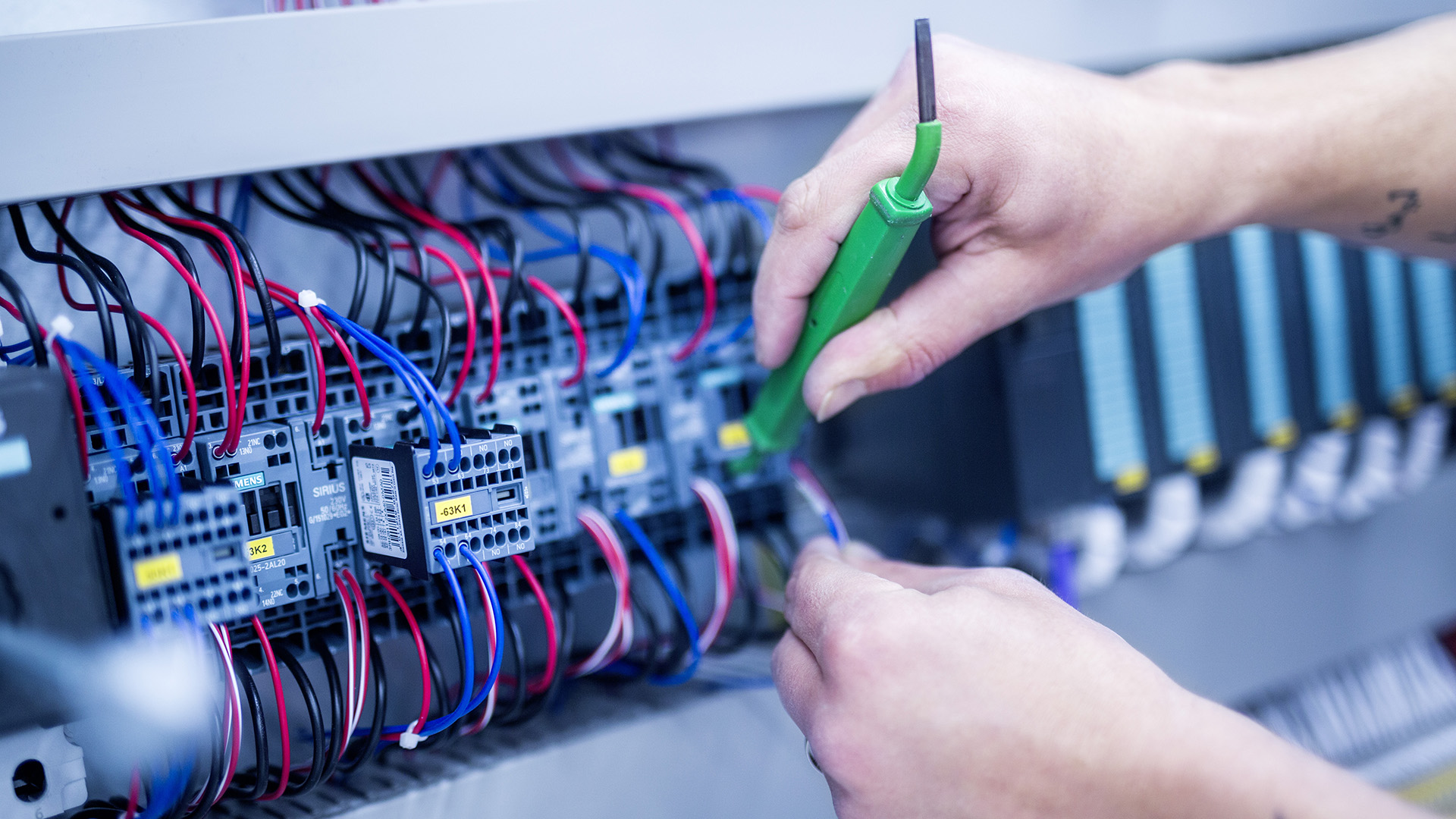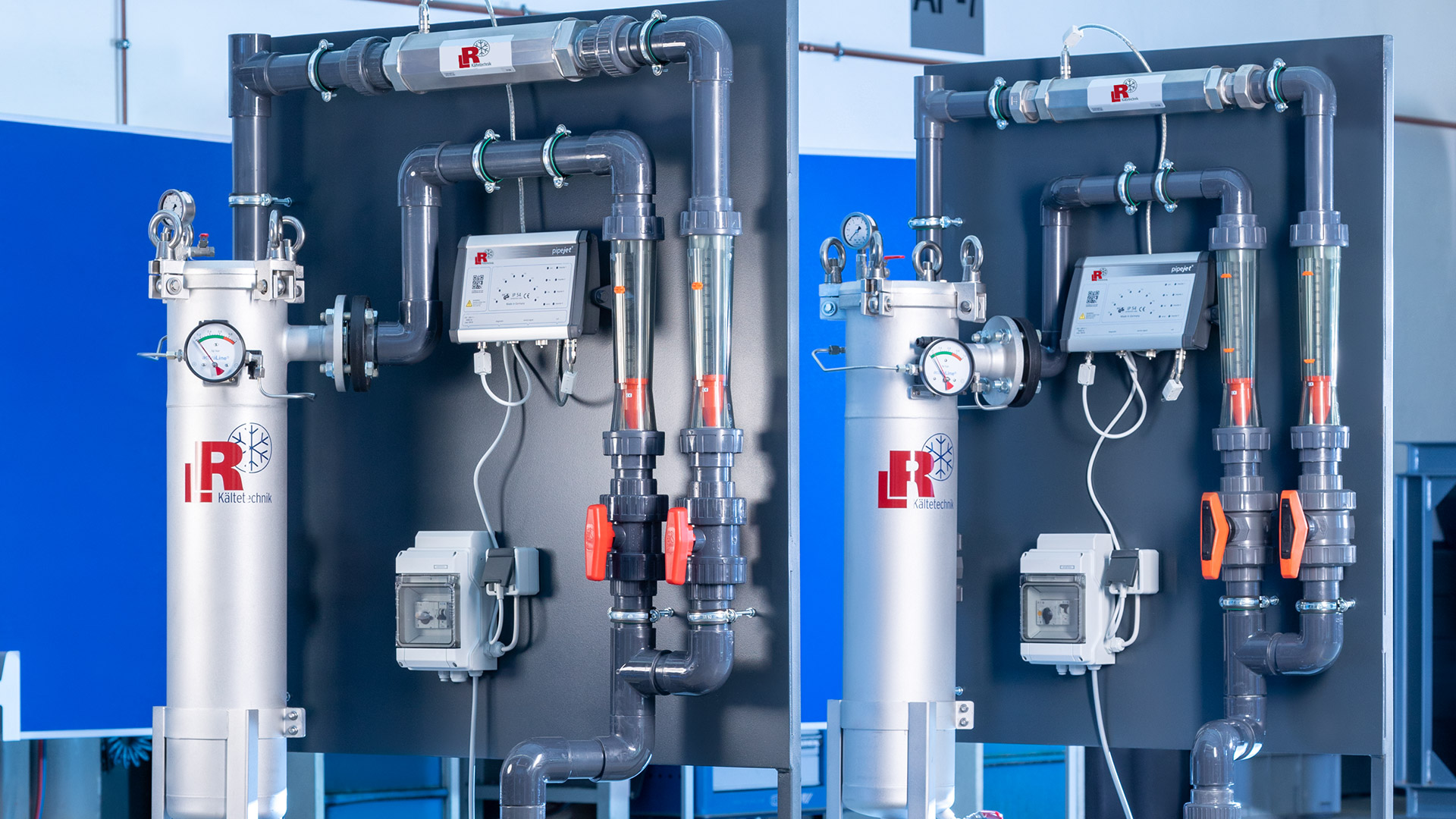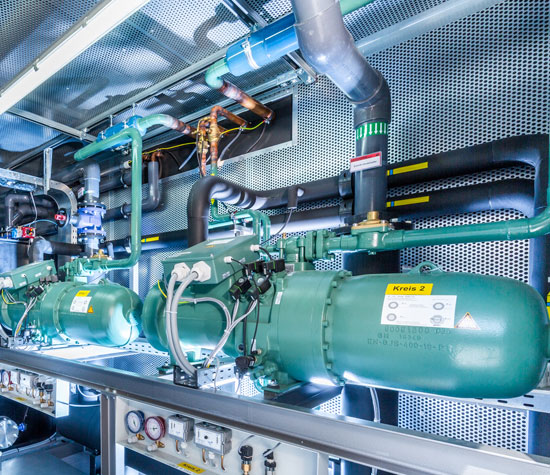Möller Flex GmbH has commissioned a new refrigeration plant from L&R at its Delbrück plant. It now benefits from higher operational reliability and significantly lower energy costs. The container design not only saves space in production, but also allowed for the system to be rapidly commissioned.
Granules, high-performance plastics machinery and comprehensive process know-how: This is what is needed to produce high-quality injection-moulded parts. The right temperature window is also a prerequisite. Both the hydraulic circuit and the injection mould must be cooled. Excessively high temperatures impair both the quality of the components and the productivity of operations. With optimum cooling, the freshly produced parts can be removed from the mould quicker. The consequence: The injection moulder increases the cycle rate and produces more parts per time unit.
Injection moulding: Cooling increases productivity
This “tweak of the knob” to increase productivity is much sought after and used, above all, by high-volume manufacturers in plastics processing. Such manufacturers often work for the automotive industry, and are therefore under particular pressure to innovate and cut costs. By optimising the temperature control, they can tap into rationalisation potential through higher cycle times. In addition, this offers them the opportunity to reduce energy costs by using a particularly energy-efficient refrigeration system.
These two objectives were pursued by the automotive supplier Möller Flex when planning a new refrigeration system at its Delbrück plant. Möller Flex GmbH is part of the Möller Group with its headquarters in Bielefeld. The almost 300-year-old family business employs around 2,300 people worldwide, and specialises in plastics processing. In addition to modules for the automotive industry, the company also manufactures structural parts, such as bellows for mechanical engineering.
In every third car: Plastic parts from Möller Flex
The production capacity of the Möller Flex division is best demonstrated by the fact that every third car in the world is equipped with at least one part from Möller Flex. Every day, the Delbrück plant produces large quantities of flexible moulded parts made from various soft plastics, thermoplastics and elastomers. Möller Flex’s special know-how lies in combining several materials. Using the latest multi-component technology (2K/ 3K), components made from hard and soft PVC, for example, are produced “in one shot”. Reinforced plastics with natural fibres from renewable raw materials are also an important topic for Möller Flex.
Planning starts with needs analysis
The existing refrigeration system at the factory was to be renovated due to its age and increasing maintenance requirements. There were also two other reasons for investing in new refrigeration technology. Franz Josef Klaus, Head of Maintenance at Möller Flex GmbH: “The old plant operated with open cooling towers for re-cooling the cooling water. This carries the risk of introducing contaminants. We also wanted to significantly reduce the energy required for refrigeration and create the conditions for precise temperature control.”
Pulling out all the stops to save energy
The project engineers at L&R Kältetechnik GmbH & Co. KG started with an as-is survey and determined the cooling requirements for the tool and hydraulic cooling. As a result, they designed a refrigeration system equipped with various energy-saving features:
– condensing temperature control with “VariKon”(which operates according to the ambient temperature)
– “winter relief” with free cooling units
– speed-controlled pumps in the refrigeration system
– speed-controlled fans in the free cooling unit
– heat recovery from the hydraulic circuit.
Die Werkzeugkühlung ist für eine Kälteleistung von 300 kW ausgelegt, die Hydraulikkühlung für 500 kW und die Winterentlastung ebenfalls für 300 kW. In summer, the free cooling unit for “winter relief” of the tool cooling is switched to the hydraulic side.
Container design offers advantages
The system is designed as a split system with a separate condenser – as is the norm in industrial refrigeration technology. Not quite common, but increasingly desired, however, is the integration of the complete system in a container. This has several advantages. No space is required in production. The system is delivered fully assembled and ready for connection, and there is also no time period in which the old system is dismantled while the new one is being set up at the same location. This is done simply by “reconnection”, so you do not need a rental system to bridge the installation time.
A view into the system via remote monitoring
The availability of the refrigeration system is just as important to Möller Flex as its operational reliability and energy efficiency. For this reason, the decision-makers chose a router as an additional option, which allows L&R service personnel to dial into the control of the plant via “remote servicing”. This means that professional advice can be sought quickly in the event of irregularities.
To increase operational reliability, the refrigeration system is equipped with peak load cooling. It keeps the flow temperature at a constant low level even at ambient temperatures above 27 °C. Another feature that increases operational reliability is the use of double pumps in the tool and hydraulic circuits.
Over €75,000 in energy costs saved per year
The new refrigeration system from Möller Flex has already been installed and is operating to the operator’s full satisfaction, who will benefit from significantly lower refrigeration-related energy requirements in the future. L&R has calculated that the three central energy-saving measures alone – “VariKon” control, “winter relief” and heat recovery – will make it possible to save €75,000 in electricity costs per year. Further savings result from demand-based control of the speed-controlled pumps and fans (among other things). Another advantage is precise, effective temperature control (especially of the tools), which – as shown above – is a prerequisite for short cycle times and high productivity.
L&R: Comprehensive know-how in plastics technology
During the project planning of the system, L&R was also able to benefit from its comprehensive knowledge of the plastics industry. Over the past 25 years, L&R has planned, built and installed numerous refrigeration systems for plastics processing companies – initially, almost exclusively in South and East Westphalia; now, worldwide.
Sector
Plastics & rubber industry
System solution
Container refrigeration systems
